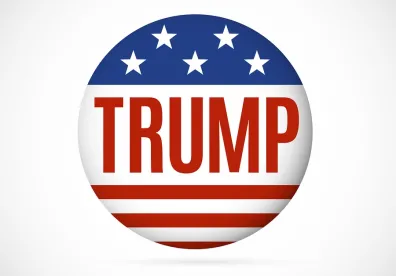The Biden administration is seeking to reverse the Department of Justice’s (DOJ) controversial prohibition on the use of Supplemental Environmental Projects (SEPs) in civil settlements imposed by the Trump administration. The prohibition on the DOJ’s discretion to use SEPs in settlements of environmental cases was announced in a memorandum issued by Jeffrey Bossert Clark, Assistant Attorney General of the Environment and Natural Resources Division (ENRD) of the DOJ, on March 12, 2020. AAG Clark had expanded the rationale for disallowing the use of SEPs in new policy memoranda issued in his last days at the DOJ: “Guidance Regarding Newly Promulgated Rule Restricting Third-Party Payments, 28 C.F.R. § 50.28,” January 13, 2021, and “Equitable Mitigation in Civil Environmental Enforcement Cases,” January 12, 2021. AAG Clark’s position on SEPs was also the subject of the DOJ’s regulation promulgated in December 2020, 28 C.F.R. § 50.28, which sought to prohibit SEP payments to third parties.
President Biden’s Executive Order 13,990 on January 20, 2021, directed all federal agencies to review and address actions taken during the prior administration that conflict with the new administration’s environmental policy. Accordingly, on February 4, 2021, the Biden ENRD issued a memorandum withdrawing nine Trump-era policy documents, listed below, which had established new enforcement priorities and settlement policies, including a few eleventh-hour policy memoranda issued by AAG Clark during his last days as acting head of the Civil Division and AAG of the ENRD:
-
“Enforcement Principles and Priorities,” January 14, 2021
-
“Additional Recommendations on Enforcement Discretion,” January 14, 2021
-
“Guidance Regarding Newly Promulgated Rule Restricting Third-Party Payments, 28 C.F.R. § 50.28,” January 13, 2021
-
“Equitable Mitigation in Civil Environmental Enforcement Cases,” January 12, 2021
-
“Civil Enforcement Discretion in Certain Clean Water Act Matters Involving Prior State Proceedings,” July 27, 2020
-
“Supplemental Environmental Projects (‘SEPs’) in Civil Settlements with Private Defendants,” March 12, 2020
-
“Using Supplemental Environmental Projects (‘SEPs’) in Settlements with State and Local Governments,” August 21, 2019
-
“Enforcement Principles and Priorities,” March 12, 2018
-
“Settlement Payments to Third Parties in ENRD Cases,” January 9, 2018
The Trump administration ENRD, under Acting AAG Jeff Wood in 2018, and then Clark beginning in 2019, had sought to reengineer how ENRD would pursue environmental enforcement and settlements. As part of this effort, it issued a series of policy memoranda seeking to redefine enforcement priorities and the means to achieve what it considered to be fair and proper enforcement principles and practices. It also articulated a rationale that SEPs were unlawful and bad policy, and DOJ ENRD attorneys were prohibited from including SEPS in settlement agreements. Many of the elements set out in these memoranda differed markedly from historic ENRD practices and created some confusion on how matters were to be handled or concluded. Indeed, AAG Clark, in his last day on the job, sought to re-articulate his vision of environmental enforcement principles and priorities, clearly anticipating that his policy memoranda would be reversed by the incoming Biden administration.
It remains unclear how firmly these policy memoranda were actually applied within ENRD and how they may have affected case management, particularly given the relatively short time that these memoranda were in effect. Nevertheless, the new acting AAG for ENRD, Jean E. Williams, rescinded these policy documents on the basis that they are “inconsistent with longstanding Division policy and practice and because they may impede the full exercise of enforcement discretion.”
While the Trump ENRD memoranda were withdrawn, they were not replaced with new policy memoranda. Presumably, the Biden ENRD will do so once its team is in place, and presumably it will also take actions to address the DOJ’s December 2020 regulation. But it seems likely that the DOJ under the Biden administration will move to authorizing SEPs in the settlement of environmental civil enforcement matters.
SEPs have been generally popular with both industry and government actors. They have been incorporated in environmental settlement agreements for decades as a way for industry to reduce its civil penalty amount in exchange for implementing programs that benefit local communities. Typically, the penalty reduction is less than a dollar-for-dollar reduction of the cost of the SEP. Under EPA’s 2015 SEP Policy, updated during the Obama administration, to qualify for partial settlement of an enforcement action, a proposed SEP must:
-
Be an action the facility is not legally required to perform;
-
Improve, protect, or reduce risks to the public health or the environment;
-
Benefit the community affected by the alleged violations; and
-
Have a nexus to the alleged violation and specific human or environmental health concerns at issue.





 />i
/>i

